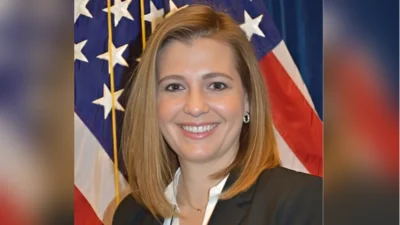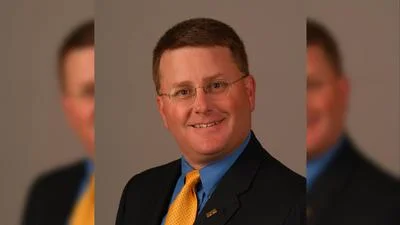U.S. Senator Josh Hawley | Official U.S. Senate headshot
U.S. Senator Josh Hawley | Official U.S. Senate headshot
U.S. Senator Josh Hawley (R-Mo.) has sent a letter to U.S. Secret Service Acting Director Ronald Rowe, addressing new whistleblower allegations regarding the agency's failure to secure vulnerabilities at former President Trump's golf course in West Palm Beach, Fla., on Sunday, Sept. 15.
“[A]n individual who has in fact protected President Trump at that very location—alleges there are ‘known vulnerabilities’ in the fence line surrounding the course: places that offer a clear line of sight to the former president and others playing the course,” wrote Senator Hawley. “The reality is that the would-be assassin should never have been able to linger around the course for that long undetected.”
As a member of the Homeland Security and Governmental Affairs Committee (HSGAC), Senator Hawley has been involved in investigating the attempted assassination of former President Trump. This week, he released a 22-page whistleblower report detailing alleged failures by the United States Secret Service related to an earlier attempt on July 13.
Senator Hawley's amendment directing the Secret Service to release all information pertaining to the July 13 assassination attempt passed unanimously in HSGAC.
In his letter dated September 18, 2024, Senator Hawley raised several questions about Secret Service protocols on September 15:
1. Did Secret Service personnel “post up” at known vulnerabilities in the perimeter fencing?
2. Did Secret Service personnel sweep the perimeter prior to the former president’s arrival?
3. Did Secret Service use canine units or Unmanned Aircraft System (UAS) elements to monitor the perimeter? How were they used?
4. If counter-surveillance personnel were present, how were they deployed and why did they not detect the gunman sooner?
5. What was the specific counter-surveillance mitigation plan for known vulnerabilities outside the fence line?
Whistleblowers with information are encouraged to contact Senator Hawley’s office via email at tips@hawley.senate.gov or by phone at (202) 224-6154. Whistleblower identities will be protected against disclosure under the Whistleblower Protection Act, which prohibits retaliation for disclosures of evidence of mismanagement, waste of funds, abuse of authority, or illegal activity.



 Alerts Sign-up
Alerts Sign-up